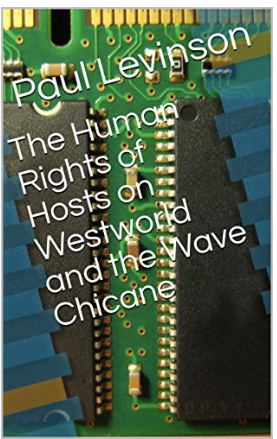
A chilling episode 1.3 in the alternate history that is The Plot Against America, which explores the corrosive impact on anti-semitism on the Levine family, as they take a little vacation in Lindbergh's Washington, DC.
It's not that Lindbergh has specifically done anything against the Jews - at least, not yet. It's that American bigots, who range from people in restaurants to people who run hotels, are beginning to voice and an act upon their anti-semitism. And the helpful police warn Herman that their patience is wearing thin, when he complains when he and his wife and kids are thrown out of their hotel, merely because they are Jewish.
That scene sums up the stark difference between The Man in the High Castle and The Plot Against America. The Nazis winning the war is a very different kind of alternate history than Nazi sympathizers slowly gaining control of the United States, against the backdrop of Hitler winning the war in Europe,
All of which makes Rabbi Bengelsdorf an even more inexplicable character. Surely he knows what Herman has seen and experienced. I get that he's against the war, and therefore strongly supports Lindbergh's isolationism. But how can the Rabbi turn a blind eye to Jews being publicly badmouthed and thrown out of restaurants? And if Bengelsdorf is inexplicable, Evelyn Finkel is even more so. She'll soon know exactly what her sister's family experienced. And the coming attractions show that she still defends Bengelsdorf - ok, she loves him - and Lindbergh. Could love go that far?
Well, though The Plot Against America addresses the real anti-semitism in America that simmered in the 1930s and the 1940s, the Levines are fictional characters, as is Bengelsdorf, so anything can happen.
See also The Plot Against America 1.1: Yet Another Alternate Nazi History, with Forshpeis ... The Plot Against 1.2: The 33rd President










